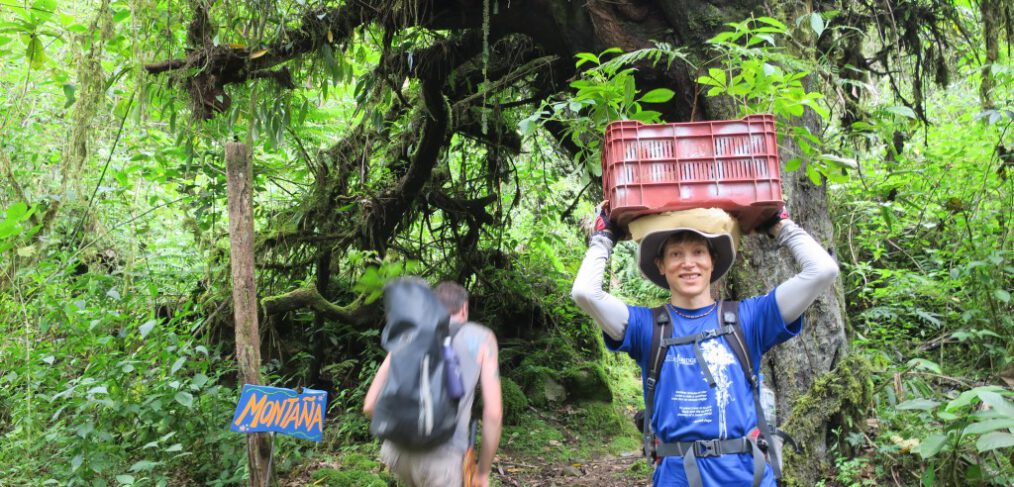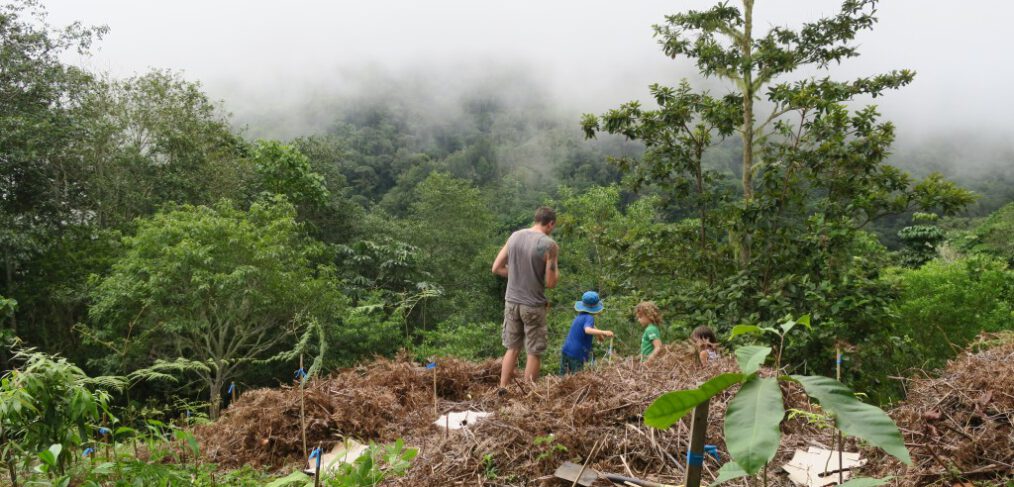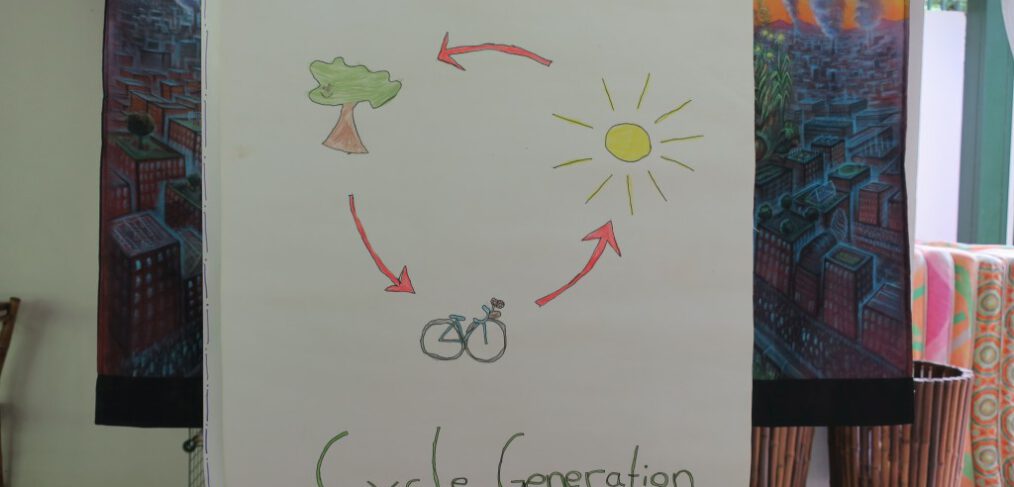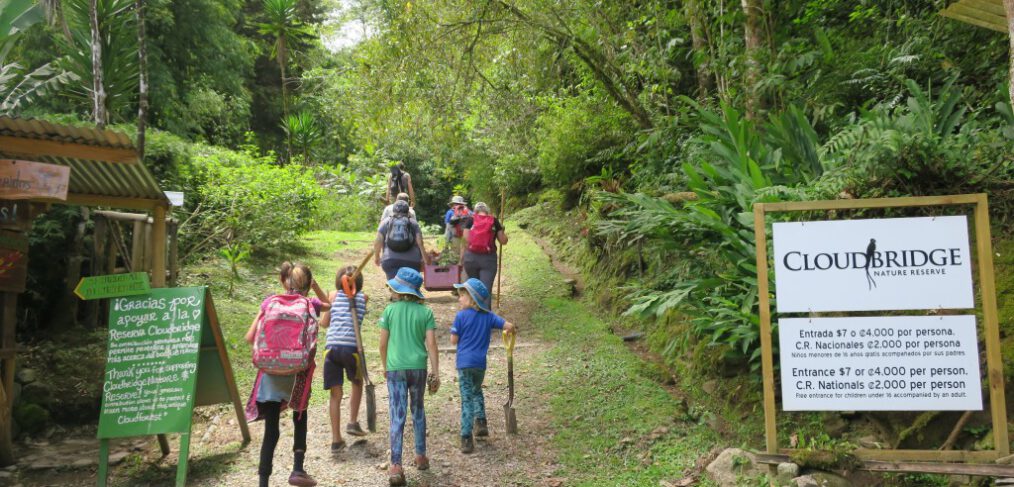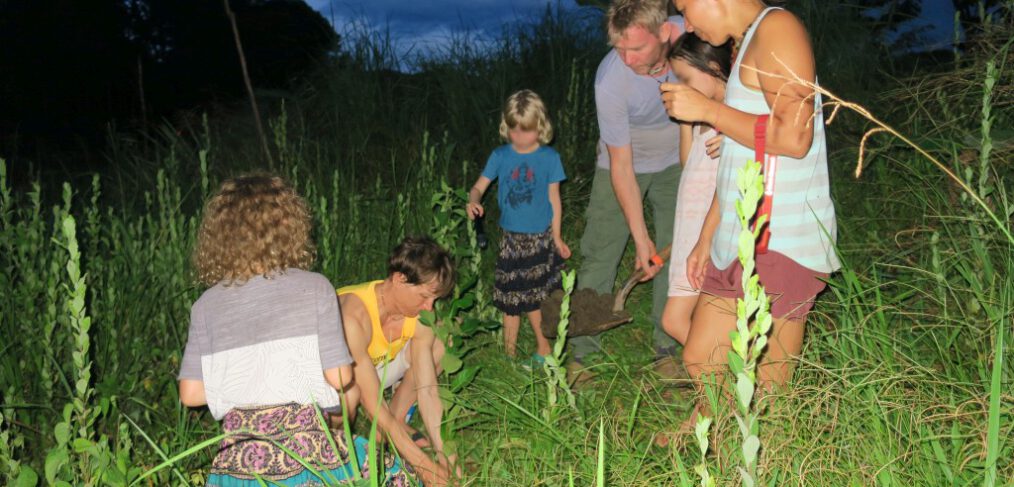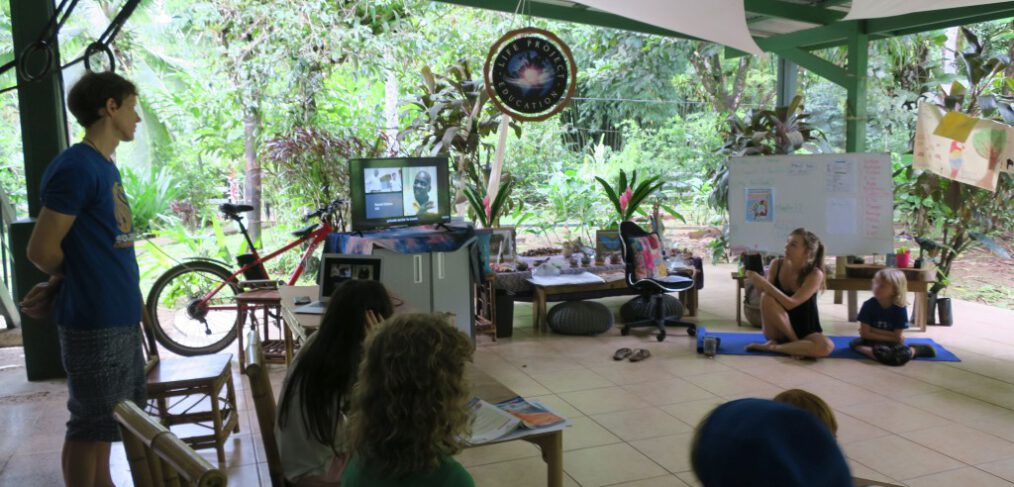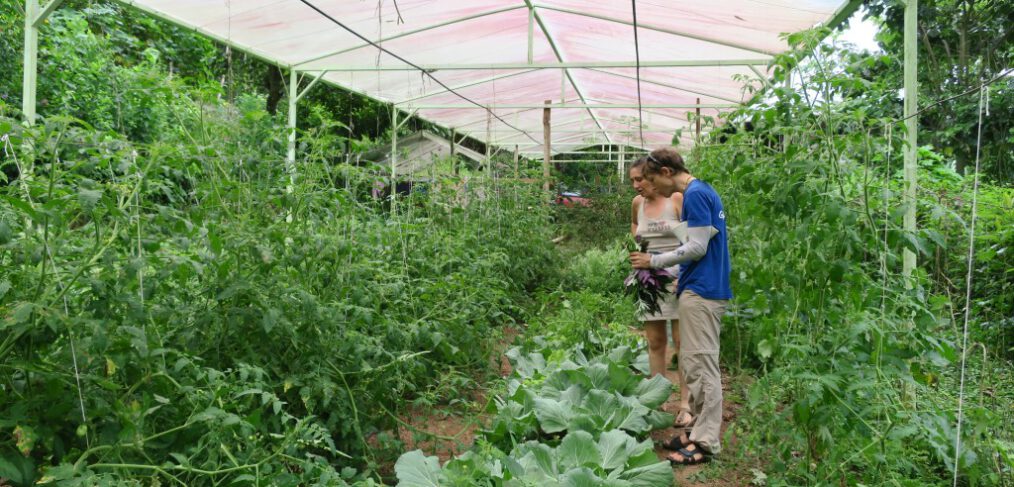El grande finale: plant trees, trees, trees, a climate activist workshop and a permaculture garden
The 7th and last month of living in Costa Rica was filled with so many highlights. It was our bonus month, as we stayed longer due to the pandemic.
Life Project Education (LPE), where our children attended so inspiring classes during these 7 months (partially online due to the restrictions), had invited us to hold a climate activism workshop on the last day. The monthly theme had been activism, where the students worked on topics especially around reforestation, but also black lives matters or LGBTQ+. In February they had already engaged the students about women in history, many of them civil right’s activists, which I particularly liked. Now in our last month the instructors covered activism holistically in English, ecoliteracy, art and Spanish. Greta Thunberg, Malala, Ruby Bridges were just some of the names that were mentioned by the school’s founder Alys Robinson and her close team.
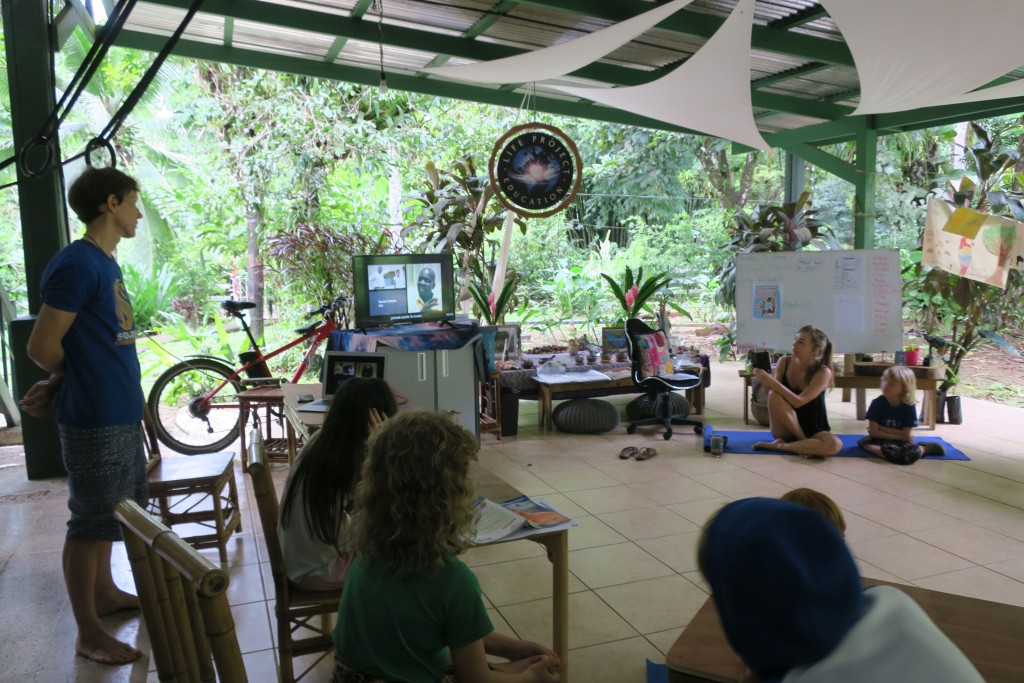
So the children, Amiram and I arrived at LPE with a newly created Cycle Generation poster, our old Africa Climate Adventures Video, our new Cloudbridge nature reserve video and a jackfruit seedling, that had germinated from a fruit that we ate during the Envision festival early March and the children had cared lovingly for throughout this time. We structured the workshop around the 3 solutions to tackle the climate crisis, that we have been campaigning for since our Africa climate adventure on the bicycles in 2008 and 2009:
- Energy: The children were quick in spotting our solar charger on the bicycle in the Africa video. We touched briefly upon the importance of solar photovoltaic (and other renewable – RE) energy to reduce carbon emissions generally. And that Costa Rica is already the world leader with more than 98% of RE electricity in the grid.
- Mobility: The bicycle as the primary mode of transport seemed the most surprising of the 3 topics. Here in rural Costa Rica, with long distances, hilly and rough roads, opting for the bicycle instead of a car is very unusual. Good that our mountain e-bikes, that we purchased for our stay here, looks really fancy;-)
- Ecology: The students were very familiar with the last one of the 3 solutions to the climate the crisis, the reforestation theme. They had recently planted trees for a wildlife corridor within a cattle farm in the community.
When the children then lowered the roots of the 50 cm tall jackfruit seedling into the red soil of the education centre’s jungle garden together with their ecoliteracy teacher and friends, I suddenly felt very melancholic, to leave all these positive inspirations behind. Where our children can feel normal, yet mainstream, with all this emphasis on an environmentally compatible and mindful lifestyle.
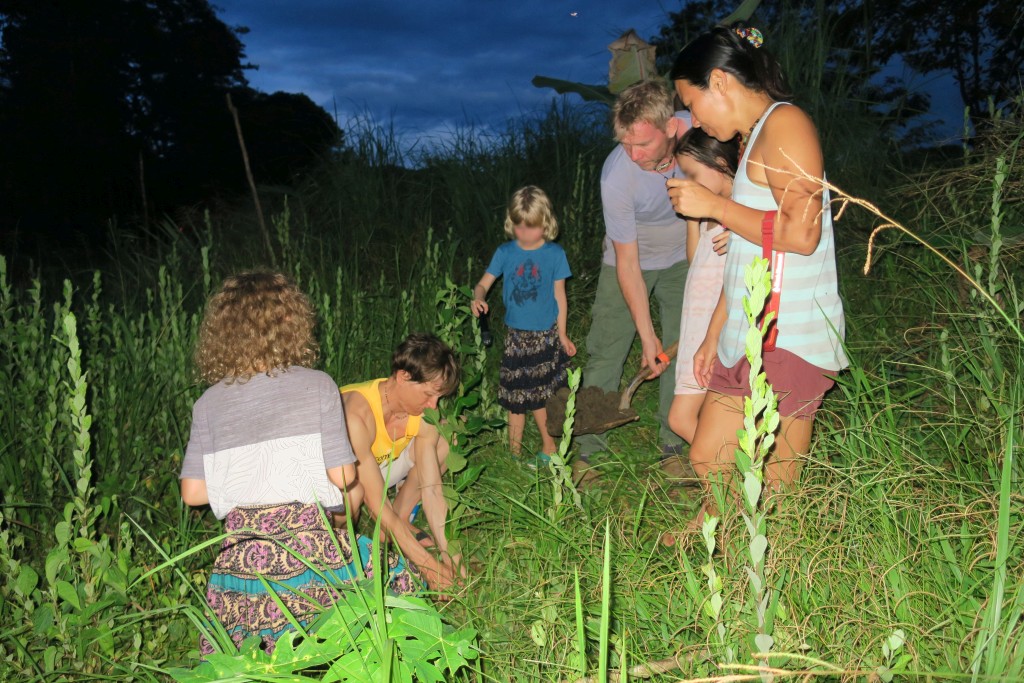
We planted the sibling of the jackfruit seedling at one of our friends place down the road, a place with a large tropical rain forest filled with toucans, a river, a minimalist house with almost no walls, chickens, guinea fowls, a dog and 2 goats. Then we gave all our 16 cacao seedlings from a fruit we had eaten a month ago to 3 more families, friends of ours, leaving a little legacy behind. Everything is so alive here, sprouts and grows so quickly, so we had accumulated a little fruit tree nursery in the last few months.
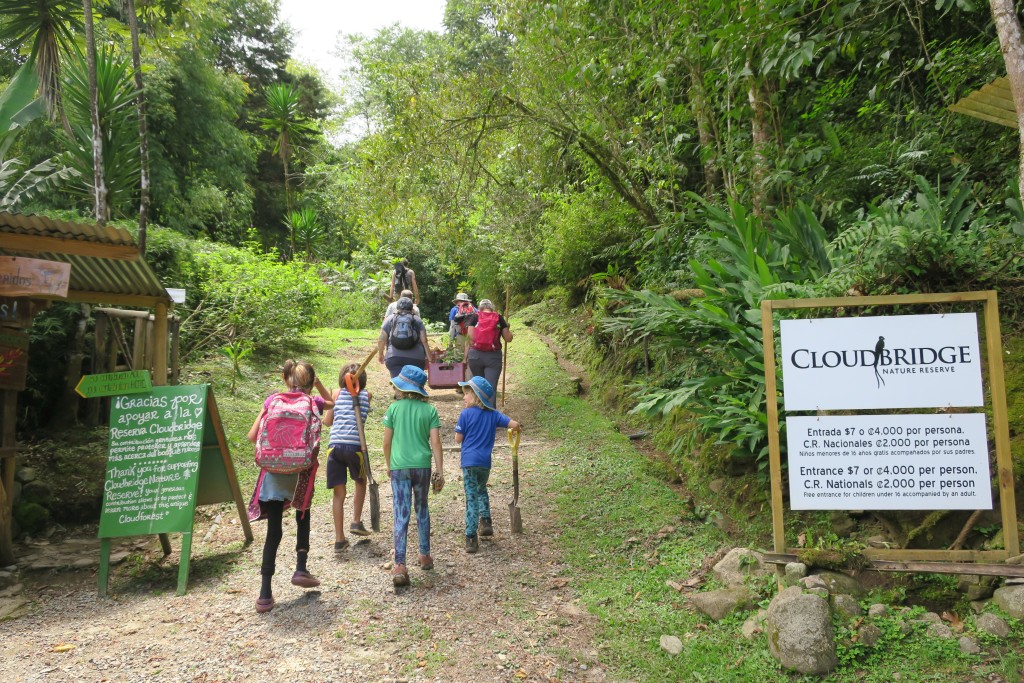
Heavy crates full of seedlings and spades were carried or balanced on the head to their new home on a steep slope. Once we had taken a few breaths we started digging and then gently released the baby trees into their natural habitat. The saplings have been generously donated by Tree Jenny from Community Carbon Tree in Platanillo and we handed over another envelope of 60.000 CC with the donations from HELPCA members to Casey McConnell, the director of the non-profit nature reserve. Although the team has shrunk, as international volunteers and visiting scientists have not entered the country due to the pandemic, it has been busy reforesting on the remaining open patches of the nature reserve. More tree plantings are envisaged for the surrounding communities. Even though the non-profit nature reserve has been hit by a sharp decline in income, spirits remain high and preparations are made for the return of the international volunteers and scientists.
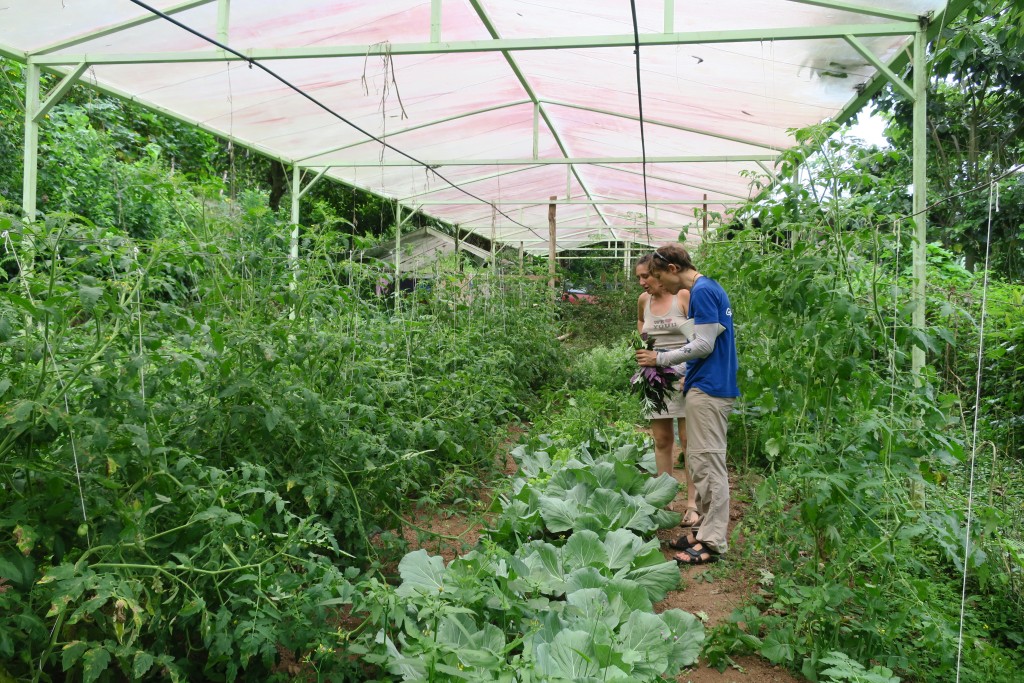
The next day, our Cloudbridge friends invited us to visit their permaculture inspired homestead with a large greenhouse filled with perennial and annual plants, fruit and coffee trees, pigs, chickens and ducks, dogs and a mother cat with the tiniest ever, one day old kittens. Permaculture is the form of agriculture that recreates a natural ecosystem and regenerates or rewilds, one that can be sustained indefinitely for communities to be able to (re-)integrate into nature and remain permanently on planet earth. This is one important ecological theme, Amiram and I have dived into deeper during our Costa Rica stay, thanks also to the vicinity to the many sustainably operating and organic community farmers.
So grateful for all these inspiring encounters, memorable opportunities to leave tree footprints, and all those brave environmentalists protecting our planet and welcoming us into their lives!!!!
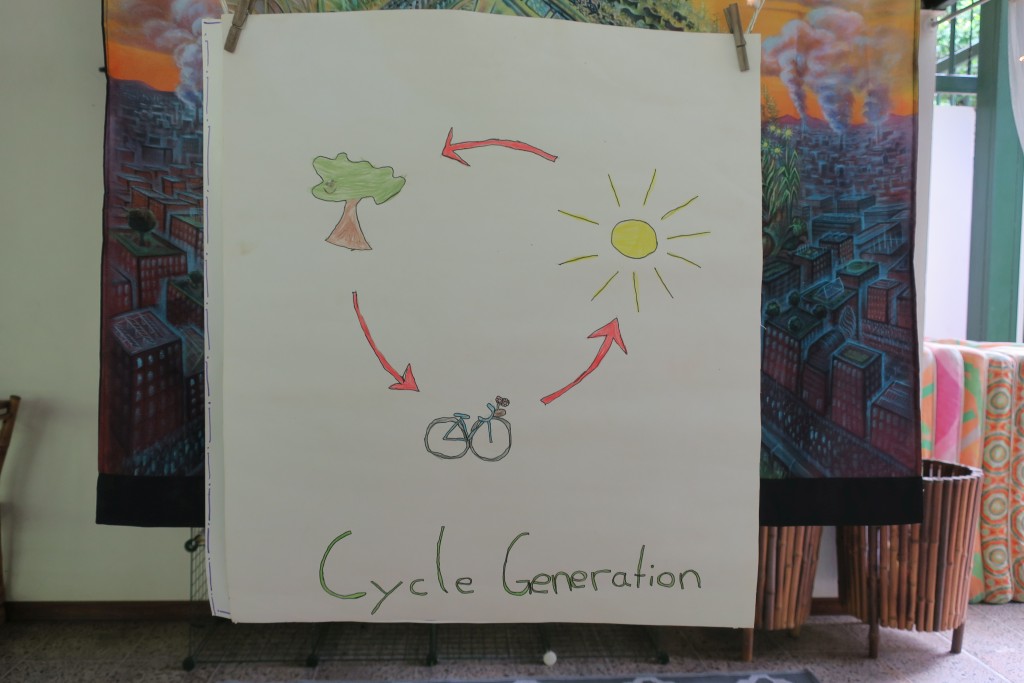
Cycle Generation 
Climate activism 
F&F tree planting 
Cloudbridge tree team 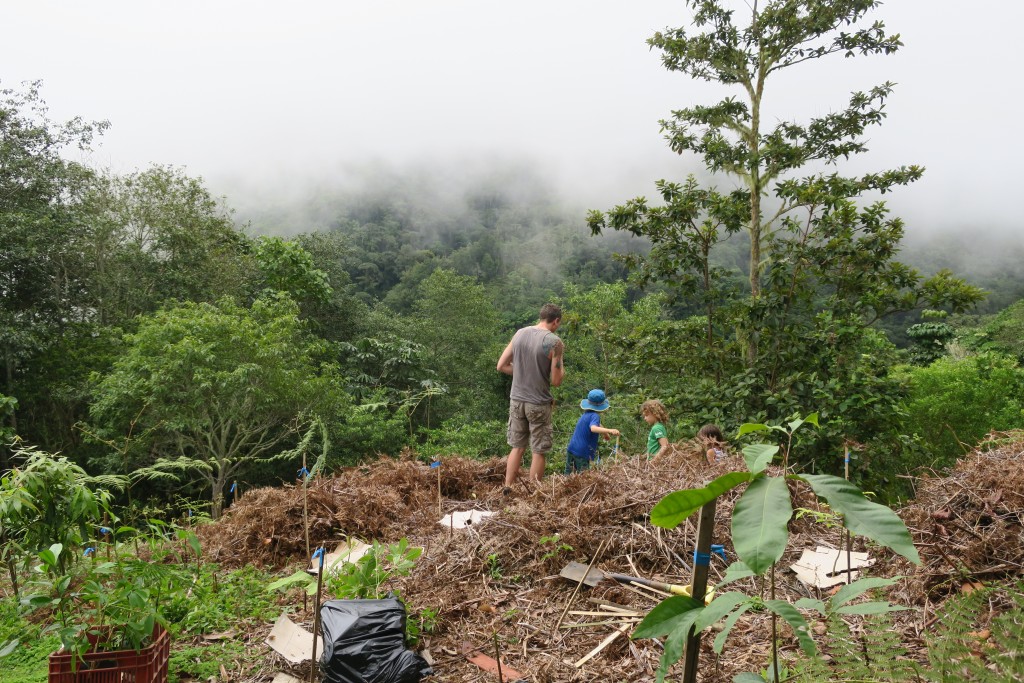
Planting steep 
Permaculture 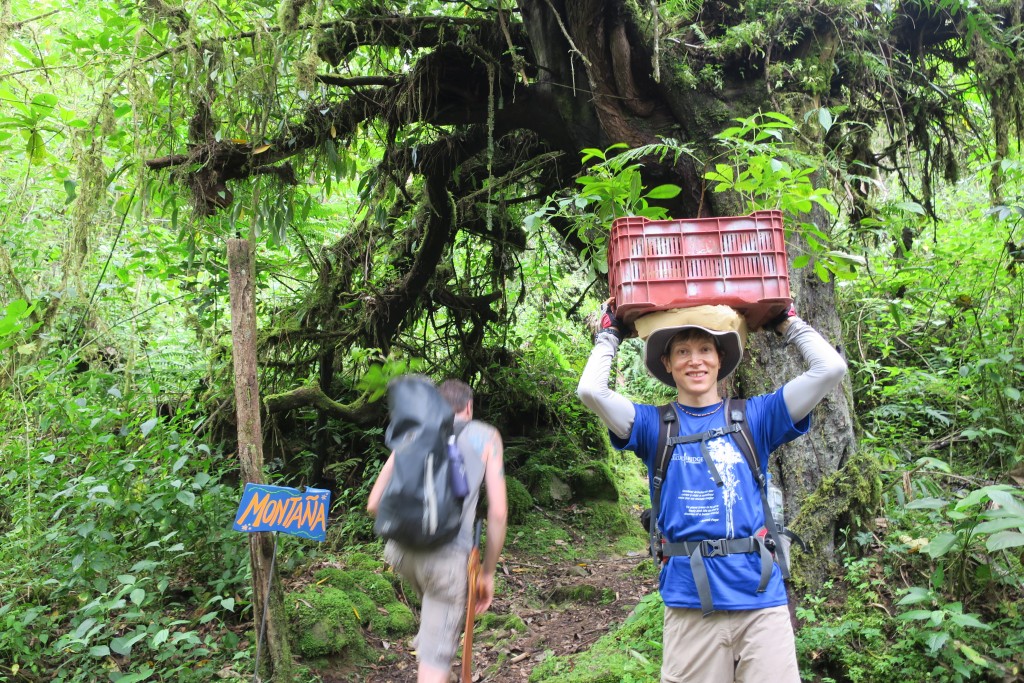
Carrying seedlings

